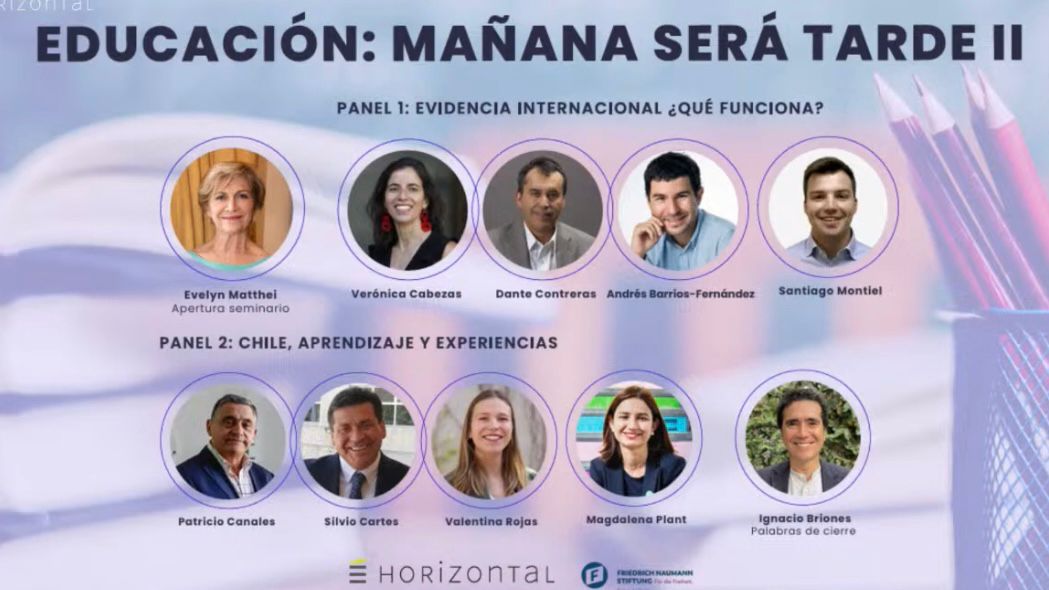
The panel first panel “International Evidence: What Works?” featured Verónica Cabezas, Executive Director of Elige Educar; Dante Contreras, Deputy Director of COES; and Andrés Barrios, Director of the Human Development Lab. The session was moderated by Santiago Montiel, researcher at Horizontal and economist.
In his opening speech, Ignacio Briones, President of Horizontal, emphasized the critical role of education in national development. He noted that “this issue, which is so central, should lie at the heart of what a country aspires to be, of what it projects for the future. A country that wants to be developed, in the broadest sense of the word, must place preschool and school education at the center — without that, there is no future.”
Following Briones, Evelyn Matthei, a presidential pre-candidate, gave an address emphasizing the importance of returning to the essentials of education. She highlighted five priorities that she believes should drive the country’s educational policy: ensuring early literacy and numeracy, prioritizing early childhood development, focusing on student well-being, strengthening technical and vocational education, and empowering school communities with greater autonomy and trust. “I am convinced we need to shift our focus back to the essentials,” Matthei explained, “and that’s why I wanted to highlight these five priorities.”
The panelists then discussed the current educational crisis in Chile and proposed solutions that do not necessarily rely on increased public spending. Verónica Cabezas addressed the ongoing challenge of teacher quality. She stressed the need for efficient programs to address the teacher shortage and to improve professional development. “We don’t just need quality teachers — we need to attract them, retain them, support them, and provide the right conditions so they too can thrive,” Cabezas stated.
Andrés Barrios, Director of the Human Development Lab, presented recent research showing how students from lower socioeconomic backgrounds tend to apply to fewer higher education programs, often choosing options that are below their academic potential. This results in missed opportunities for talented students to enroll in high-quality, well-funded programs. Furthermore, many students underuse special admissions pathways designed to support them. Barrios emphasized the need for stronger support mechanisms, especially during key educational transitions. “We need to create support systems, particularly during educational transitions, and strengthen the role of counselors to help both young people and their families choose institutions and programs that suit them throughout their life cycle,” he said.
Dante Contreras concluded the panel with an international perspective, drawing on insights from the World Bank and PISA assessments. He stressed the importance of using data and evidence to shape educational policy, saying, “We must place research and evidence at the forefront when designing measures — it’s a healthy approach, it informs our decisions, and it is more cost-effective for everyone.”
Reflecting on the panel, Andrés Barrios highlighted how each expert brought a unique perspective, making the discussion both diverse and complementary. “We each touched on different topics, so I’d say the presentations were quite complementary,” he noted.
This was just the first of two panels held during the event. The second panel, titled “Learning and Experiences”.